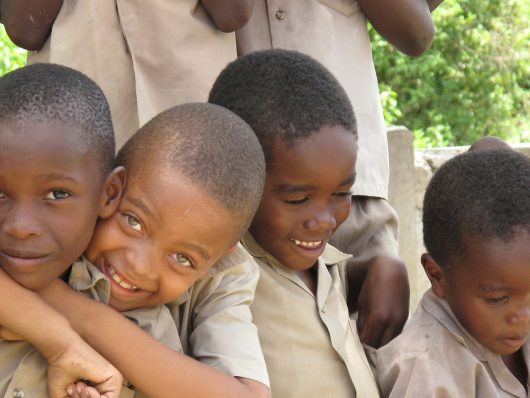The Wesley Foundation Alleviates Poverty in Jamaica

Even though Jamaica is now a predominately middle-class nation, poverty still resides in the more rural areas of the country where crime, lack of education, unemployment and natural disasters are common. As a way to combat these issues, the Wesley Foundation sends missionaries to alleviate poverty and make an easier life for civilians.
Why is There Poverty in Jamaica?
There are 14,000 Jamaican citizens living in extreme poverty, and in 2015, it was estimated that the unemployment rate in Jamaica was 13.5 percent. Unemployment runs high throughout the country, with some of the only jobs available being farming, fishing and tourism-based positions — the latter of which bringing in the most income.
Poverty also stems from high youth crime rates. Children living in poverty in Jamaica are often orphaned, a status which makes them targets for gangs and street violence. Jamaican children also face unequal opportunities in receiving secondary education. The high cost of secondary education makes a lot of children living in rural areas of the country unable to attend school, especially paired with the region’s frequent lack of adequate school supplies and teachers. These occurrences make it even more difficult for children living in poverty in Jamaica to receive a proper education.
According to The Global Facility for Disaster Reduction and Recovery, Jamaica is the third most unprotected country from natural disasters in the world. The country is affected by hurricanes, flooding, landslides and earthquakes. The development of towns in environmentally sensitive lands has increased with the growth of population and urban poverty, which makes an even larger number of people affected by natural disasters.
What is the Wesley Foundation Doing?
In an interview with University of Georgia student, Madison Fields, she recounts how she spent her sophomore spring break with the Wesley Foundation helping fight poverty in Jamaica in March 2018. The Wesley Foundation is an Christian organization that helps mold college-aged students to become closer to Christ through their efforts on different college campuses.
Fields and the other missionaries spent their time in Mandeville, Jamaica where they built sidewalks for students and teachers at Youth With a Mission (YWAM). YWAM is a Christian-based organization that provides learning facilities for children in different parts of the globe.
A Foundation of Sustainable Solutions
Fields said that the YWAM school in Mandeville is located at the base of a mountain — a spot where heavy rain runoff collects and causes major flooding, and students and teachers were often injured from walking to school in the deluged grass. To solve this issue, Fields and the other missionaries dug up the grass, mixed concrete with shovels and carried buckets of mixed concrete and water up a hill to where the school is. “The sidewalks definitely helped the teachers and kids walking from building to building,” Fields said. “It helps especially when it rains because it provided a sturdy area for them to walk on that doesn’t get washed away.”
The Wesley Foundation also helped subside poverty in Jamaica by contributing to “Homes for Help” — volunteers built a home for a single mother and her children, and renovated the roof of a school to withstand tropical storms. “The base was a concrete slab they originally had to put their pigs in but we used it to build the house,” Fields said. “And then at a school, we painted the roof with roof compound to keep it from weathering too bad and make it last longer.”
Through sustainable efforts such as these, the Wesley Foundation should continue to pave the way in creating positive global impact.
– McKenzie Hamby
Photo: Pixabay
